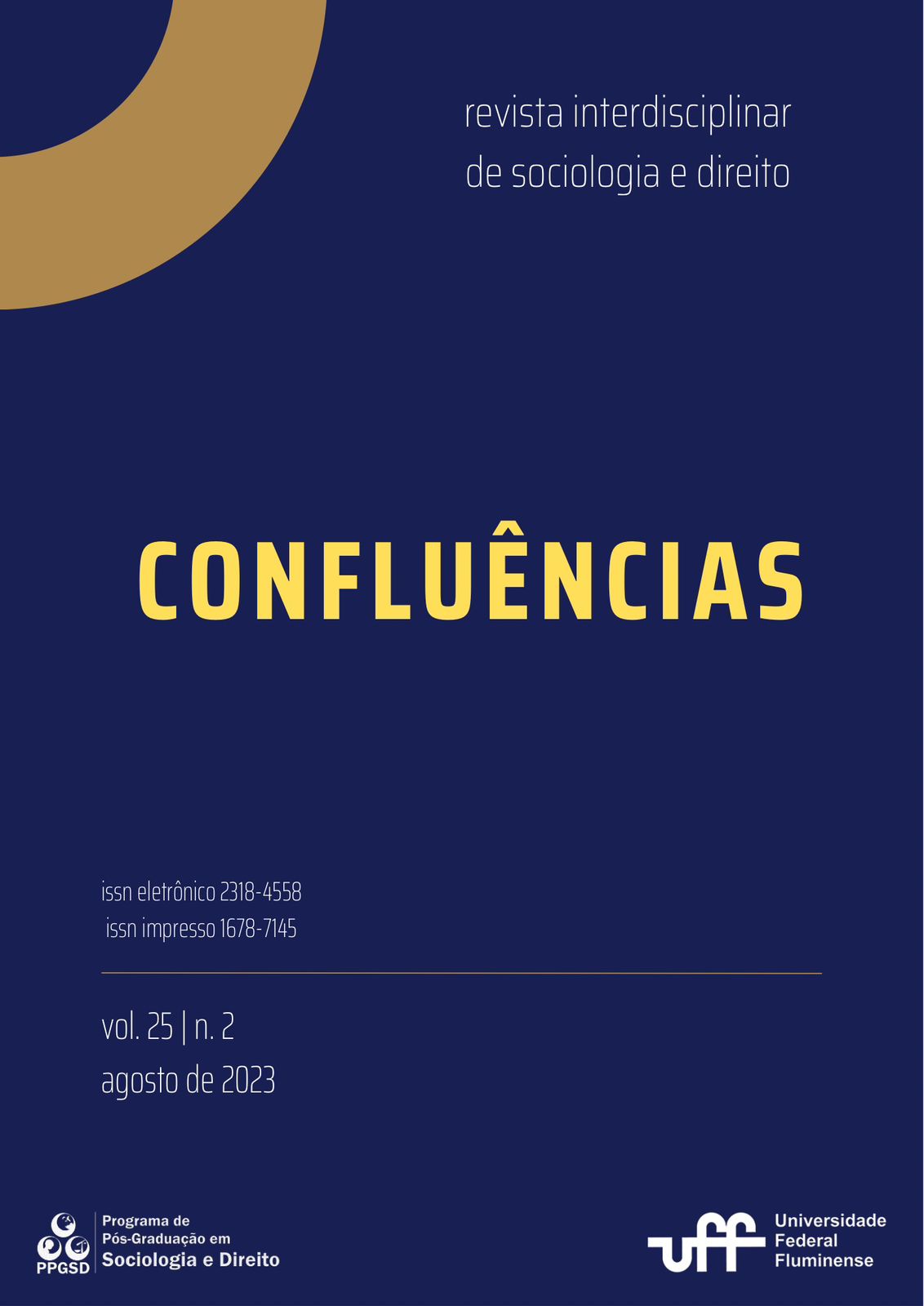AS COMUNIDADES TRADICIONAIS QUILOMBOLAS DO NORTE DE MINAS/MG E OS DESAFIOS RELACIONADOS COM A PANDEMIA DA COVID-19
DOI:
https://doi.org/10.22409/conflu.v25i2.58491Resumo
As comunidades tradicionais se vinculam aos seus ambientes biofísicos por meio da utilização de seus recursos naturais para a subsistência e como suporte para manifestação de suas atividades cotidianas e tradições culturais. O Norte de Minas/MG concentra uma pluralidade de comunidades tradicionais - entre elas destaca-se as quilombolas - que se apropriam das áreas adjacentes ao Rio São Francisco para moradia, para exercício de suas atividades diárias e para manifestação de seus valores culturais. Contudo, apesar de estabelecerem esse forte vínculo com o território onde se inserem, elas têm lidado com ameaças de expropriação, além de enfrentarem desafios de perpetuação de suas tradições culturais e limitação de seus recursos para subsistência em função do contexto da pandemia da COVID-19. Assim, coloca-se como objetivo deste artigo analisar os desafios relacionados com o processo de reconhecimento de permanência nos territórios pelas comunidades quilombolas do Norte de Minas e de perpetuação de seus saberes, frente aos impasses fundiários e ao contexto do fim da pandemia de COVID-19. A pesquisa é de base qualitativa e utiliza-se como procedimentos técnicos de coleta de dados a análise documental, a partir da consulta a documentos oficiais como decretos, pesquisa bibliográfica por meio da consulta a livros, teses e artigos e pesquisa de campo, a partir da análise de relatos de membros integrantes das comunidades tradicionais em questão.
Downloads
Downloads
Publicado
Edição
Seção
Licença
Copyright (c) 2023 Amaro Sérgio Marques, Brenda Melo Bernardes, Alessandro Borsagli

Este trabalho está licenciado sob uma licença Creative Commons Attribution-NonCommercial 4.0 International License.
Os autores mantêm os direitos autorais e concedem à revista o direito de primeira publicação, com o trabalho simultaneamente licenciado sob a Licença Creative Commons Attribution que permite o compartilhamento do trabalho com reconhecimento da autoria e publicação inicial nesta revista. Têm autorização para assumir contratos adicionais separadamente, para distribuição não-exclusiva da versão do trabalho publicada nesta revista (ex.: publicar em repositório institucional ou como capítulo de livro), com reconhecimento de autoria e publicação inicial nesta revista. Possuem permissão e são estimulados a publicar e distribuir seu trabalho online (ex.: em repositórios institucionais ou na sua página pessoal) a qualquer ponto antes ou durante o processo editorial, já que isso pode gerar alterações produtivas, bem como aumentar o impacto e a citação do trabalho publicado.







